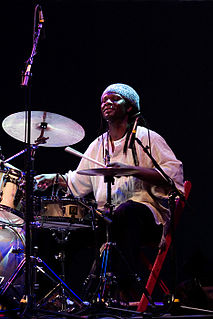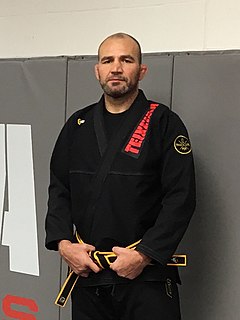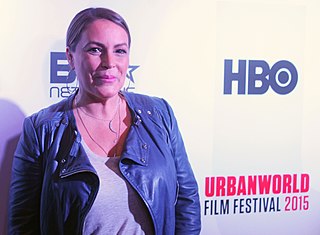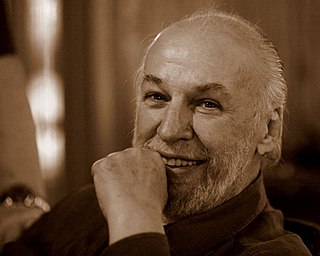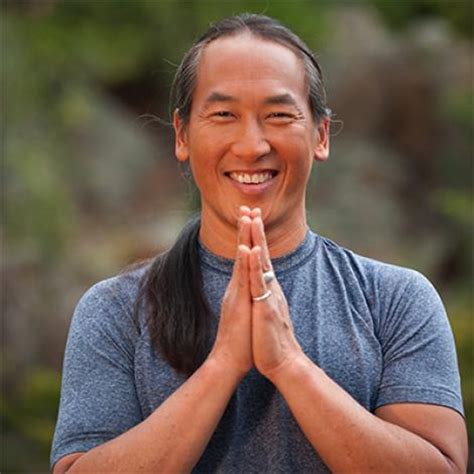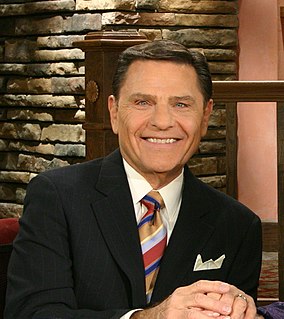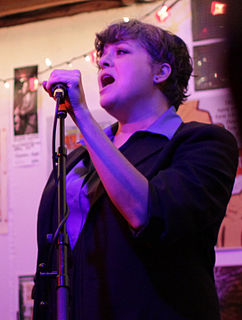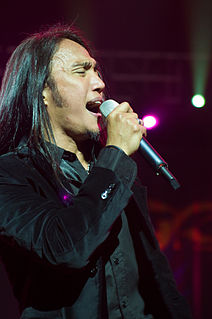A Quote by Hamid Drake
When I play with people, one of the first rules is to listen. Just by the near fact that you listen and you're open to listening, or you're listening and you're open to what this other person is doing. Also you going to be open to what you're doing and you're not going to have it like 'planned out'.
Related Quotes
The secret is to listen, open your mind, listen to the pros. With the help of the UFC's Performance Institute, too. Listening to my coaches and listening to my body, too. Having discipline. It's not just listening, too, because sometimes people have the knowledge but don't know how to use it. You need to be able to put that to practice.
'In empathic listening you listen with your ears, but you also, and more importantly, listen with you eyes and with your heart. You listen for feeling, for meaning. You listen for behaviour. You use your right brain as well as your left. You sense, you intuit, you feel.' ... 'You have to open yourself up to be influenced'.
If you feel like you're doing terrible in a scene, that usually means that you're not listening because you're too preoccupied with yourself... you're not listening to your scene partner. If you listen, you're naturally going to get that response that the camera's going to pick up because you just react.
Now that I'm afraid was institutionalized, and the great thing about the Canadian content regulations is that it broke that open. I mean it broke it open because people were faced with no choice, but to really start listening to these records and find the ones that they could play. It didn't take long for Canadian radio to go "Wow! We're not going broke doing this, it's not killing us, the audience isn't complaining."
Become better listeners. Practice the art of listening in everything you do. Not just listening to yourself and your body, but listening to the people around you, listening to the plant world, the animal world. Really open your ears to what's coming at you. From there, see if you can have the ability to respond instead of react. And that usually comes with listening. If the observation and the listening are deep, then your action will be deep also.
I used to listen to music from the frosting down. As a word nerd, lyrics are really important to me, and then the melody. Playing in the Rock*A*Teens was the first time I ever heard music from the bottom up. I was hearing songs I'd heard a million times on oldies radio, and I'd be like, "Wow, listen to what the bass is doing!" When I was first singing in bands, I'd just get out there with my machete, wildly whacking away at the foliage. But you learn how to listen. When I feel I'm doing it right, it's 90% listening and 10% output. It's not "look what I can do!"
Deep listening is the kind of listening that can help relieve the suffering of another person. You can call it compassionate listening. You listen with only one purpose: to help him or her to empty his heart. Even if he says things that are full of wrong perceptions, full of bitterness, you are still capable of continuing to listen with compassion. Because you know that listening like that, you give that person a chance to suffer less.
Meditation is totally different. When you concentrate you close your mind to everything else. Meditation means just an openness, a relaxed openness. It is not concentration. While listening to me you are listening to the birds singing in the trees too. The wind passing through the trees singing its song - you are open to it too. The aeroplane passing by, or the train - you are open to it too. This is meditation - you are simply open, available, conscious, available, all doors are open.
